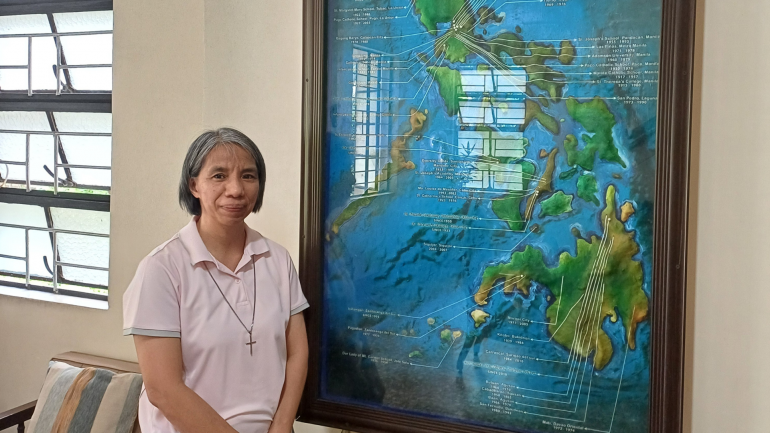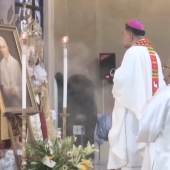ICM Sisters: A century of empowering Filipino students through education and scholarships
Despite present-day challenges, the Missionary Sisters of the Immaculate Conception of Mary (ICM) is still strongly inclined towards supporting needy students in the country.
Since their arrival more than 100 years ago, the congregation has helped thousands of economically challenged students pursue their studies.
The ICM was brought to the country by no less than its Foundress Mother Marie Louise De Meester, a Belgian nun, who established it in 1897 in India.
She came to the Philippines with one professed nun, and two novices and established their first house in the country in 1910, 13 years after she founded the congregation.
They established schools, and medical clinics across the country from as far as Kalinga- Apayao in northern Philippines to Jolo, Sulu in the south. From the beginning, the Foundress and the pioneering sisters went to the peripheries of the country.
The glaring poverty that gripped students in the rural and depressed urban areas prompted the nuns to offer scholarship programs.
Through assistance from charitable individuals, families, and organizations the scholarship program produced teachers, engineers, social workers, information technology specialists, accountants, medical practitioners, and other professionals.
And to the joy of the nuns, these people they helped finish their studies come back to show and express their gratitude, like visiting and gifting the retired sisters in the congregation’s nursing home.
Currently, the congregation supports about 200 students under its scholarship program, said Sr. Marina Badian, an ICM member.
Their scholarship program recipients pursue their studies at schools run by the congregation, state-owned schools, and other private schools, she added.
“We start to sponsor them from elementary until they finish college,” Badian said. “We make sure they finish college unless they decide to discontinue their studies.”
The students could decide on what course they would take in college, she explained.
The scholarship program recipients are not required to do service for the congregation after their graduation, but as an expression of gratitude, they are encouraged by the Sisters to serve those in the peripheries.
Local and international donors help the congregation provide economically challenged students with scholarship grants, like CUNINA, a Belgian non-government organization that views education as the key to a brighter future.
Today, most of the congregation’s scholars are based and studying in the northern and southern Philippines.
The ICM has foundations, like the Pag-Asa Human Development Foundation, said Sr. Perla Macapinlac, another member of ICM.
“Education has become an essential service of the congregation,” she said. “Providing scholarship grants to needy students has been our constant apostolic concern.”
The congregation’s St. Theresa’s College in Quezon City has its own Foundation Sambayan Educational Foundation, Inc., and has its own scholarship program funded by its alumnae, parents, and friends.
The ICM is keen on continuing to provide support to students who are financially challenged.
Part of the plan for the future is to work with the Restorative Justice Ministry (RJM) of the Diocese of Kalookan in their scholarship program for the children of Persons Deprived of Liberty (PDL).
The sisters are also looking at the possibility of consolidating all scholar sponsorship under the care of their congregational finance office, ICM individual communities, and individual ICM sisters.
The congregation’s scholarship program relies on the “generosity of individuals and organizations.” The sisters are grateful to the charitable people and groups who support them in providing financially challenged students with free education.
The congregation’s Pag-asa Human Development Foundation has an office at the ICM central house at 61, Banawe Street, Barangay Lourdes, Quezon City, and can be reached at phone number 8712-4146.
Radio Veritas Asia (RVA), a media platform of the Catholic Church, aims to share Christ. RVA started in 1969 as a continental Catholic radio station to serve Asian countries in their respective local language, thus earning the tag “the Voice of Asian Christianity.” Responding to the emerging context, RVA embraced media platforms to connect with the global Asian audience via its 21 language websites and various social media platforms.
















